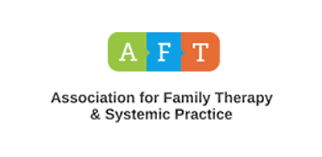
What difficulties are helped by Family Therapy?
Research shows Family Therapy is useful for children, young people, adults and older adults experiencing a wide range of difficulties and circumstances including:
- Couple relationship difficulties
- Child and adolescent mental health issues
- Adult mental health issues
- Child, adolescent and adult behaviour difficulties
- Parenting issues
- Illness and disability in the family
- Separation, divorce and step-family life
- Anorexia, bulimia and other eating disorders
- Fostering, adoption, kinship care and the needs of ‘looked after’ children
- Domestic violence and abuse
- Self-harm
- Drug and alcohol misuse
- The effects of trauma
- Difficulties related to ageing and other life cycle changes.
Confidentiality
An essential part of the therapeutic relationship is the confidence that is shared between therapist and client. That confidence and trust is essential in creating a safe space where therapy can take place and breakthroughs can be made. However, there are occasions where your therapist may be asked to break that confidentiality. For example, circumstances may arise when there are legal exceptions and it is a matter of public or professional duty to break confidentiality. Situations involving self-harm or actual or potential risk of harm to family members or others would constitute such circumstances.
Wherever it is possible your therapist will attempt to discuss and gain your agreement before breaking confidentiality.
At the outset of therapy, we will discuss with you the confidential nature of the work. All material and information passing between clients and therapist is confidential.
Confidential material may be disclosed in the supervision process, however the supervisor is bound by the same professional conduct on confidentiality.
What happens in family therapy?
My aim is not to take sides, blame, or provide simple ‘one size fits all’ answers to the difficulties you bring. I hope to encourage you to share understandings and views with each other and explore ways forward that work for you.
A ‘session’ will usually last 60 minutes, depending on your needs. I will do my best to make you feel welcome, and to give everyone a chance to contribute to discussions if you wish.
I will adapt my way of working according to people’s ages, needs, resources and preferences. Sessions involving children, for example, often include play and drawing. Some people may wish to talk together from the start of therapy sessions, while others may prefer some individual time with me before deciding if, what and how to share their thoughts and feelings with others. I will discuss with you how you would like to work together.
I normally work on my own with a family. However, it is possible that I might, in discussion with yourselves, suggest involving a colleague. When this is the case, I typically find that my clients say they find this ‘team’ approach to complex difficulties very helpful.
Do you work only with the whole family?
No. I may see children and adults individually and/or in family member groups. I often work with couples, or with other groups and communities, and with people across the lifespan, from children to older adults.
It might be that you are interested in exploring the relationships in your life and how they are connected to your own sense of self and your own well being. I am happy to work systemically with you as an individual, however, this may mean that we are unable to bring others into the work later on, so you would need to decide within the first few sessions if working individually is what you want to focus on.
When a family is involved with several different agencies, I may, with your permission, work with the network of professionals as well as with family members to ensure their input is co-ordinated and helpful.
I also use my understandings of relationships to work with organisations. I also use my skills in family sensitive working to train and/or supervise other professionals.
How many sessions will we need?
Sometimes it doesn’t take much to help people free up their strengths and find ways forward. Sometimes difficulties are more complex and families may need longer to find solutions that work for them. I am happy to discuss timings and timescales with you, and we can normally get some sense together of what would be most helpful within a couple of sessions.
What is meant by family?
I have found a wide range of definitions of family. The most important definition for our work, is what you think of as family. This may typically be those around you who care about and care for each other. It may be those who live together, or who are geographically distant.
What if someone is reluctant to go?
Sometimes, when one person or group is keen to try Family Therapy others close to them may be more reluctant. This is understandable. Going to Family Therapy can feel like a big step and some people are more ready to take it than others.
If this is the case I may suggest an initial meeting, so we can discuss the possibility of working together and give everyone a chance to air their concerns and ask questions. We may look at different ways together of involving others which is more appropriate to them. Or we might think about ways that their input and views might be included in the work without their physical presence in the sessions.
What is the evidence for family therapy?
Systemic family therapy has been found to be effective for children’s and adults’ difficulties, both when individuals have acquired a mental health diagnosis and when there is more general or complex distress.
It is effective across the lifecycle, spanning developmental stages from under fives to old age. Working therapeutically with individuals together with their families and/or significant others enables the use of individuals’ relationships as a resource, and reduces stress and difficulties for all family members.
Family therapy has also been found to be particularly effective during severe and complex disorders requiring extensive treatment. Systemic family therapy can sometimes include relational work with individuals, psychoeducational approaches and multiple family groups. For the latest research see here.






